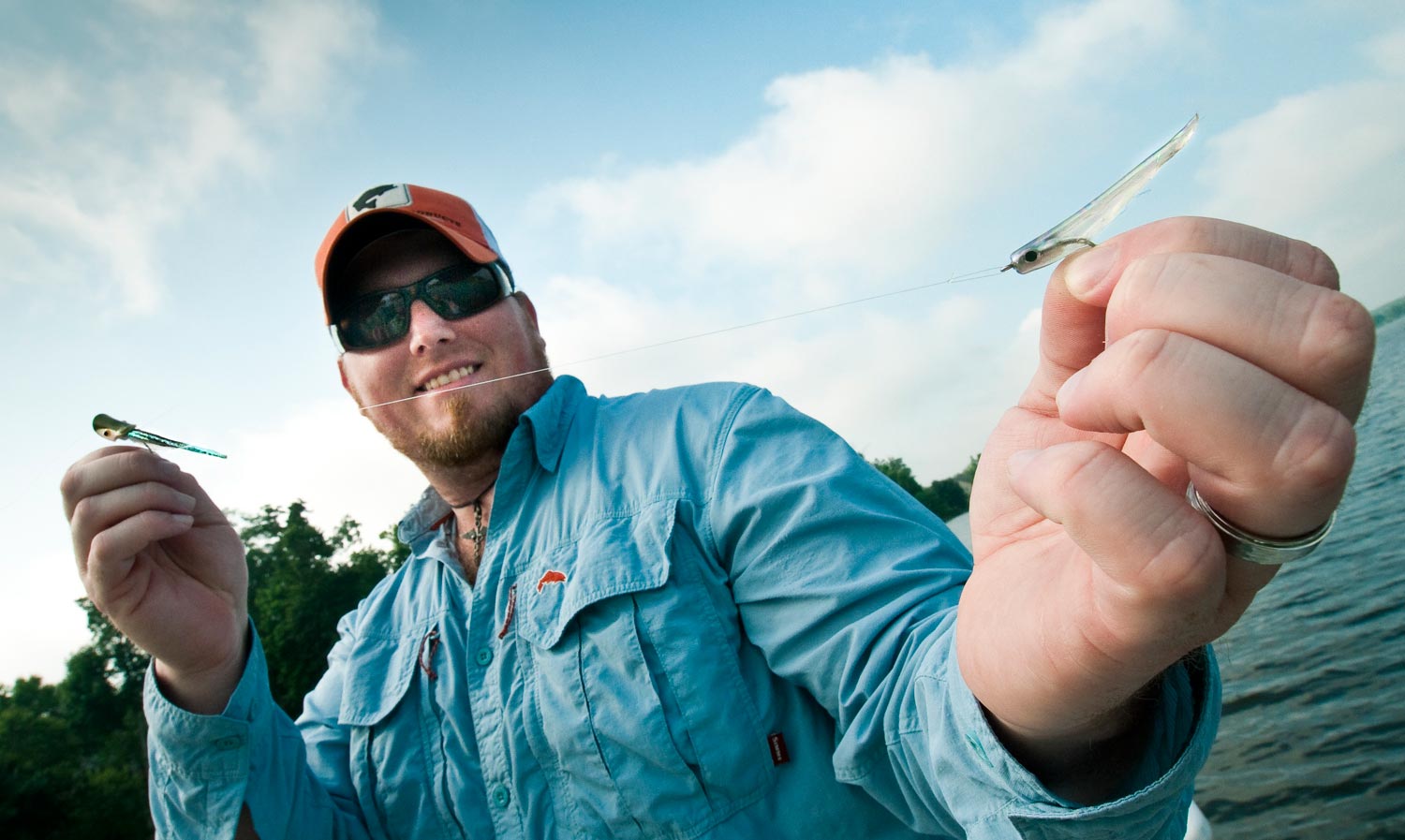Like a lot of kids, I spent most of my adolescent summers chasing bass and bream on the local creeks and ponds in my area.
Most days, a single rubber-legged popper tied to the end of my leader, was all that I needed to catch fat bream, and the occasional lunker bass. On days when the bite slowed, I’d put down my fly rod and head to the neighborhood pool with my best friend Ryan Evans. It didn’t take long for us to get labeled the “Huckleberry Finn” boys of the neighborhood. We got plenty of strange looks walking through those pool gates, fishing rods in hand, and both wearing cargo shorts with boxers hanging out the tops. Those dirty looks were well worth it, and we learned to shrug them off because that pool was the perfect place for us to cool down in between our fishing adventures. It also happened to be a great best place for us to keep track of the older females. We learned reflective polarized sunglasses weren’t just good for fishing. They also were great for inconspicuously eyeing the older females walking by in those skimpy bikinis. It was a time in my life when I was relatively stress free, and hadn’t yet taken on very many responsibilities. Those were the days.
It wasn’t until I started dabbling in trout fishing that I found a way to improve my warm water popper fishing. Casting dry flies with a weighted nymph off the back for trout worked great, and that sparked the question in my head, “couldn’t I use a popper with a dropper fly off the back for bream and bass too?” So I did just that, the first chance I got. I still remember clearly, the first time I tied an olive woolly bugger off the back of a popper, and made a cast across a pod of bream beds. I was rewarded with two bream on the end of my line. Even on days when the fish wouldn’t voluntarily come to the surface to take my popper, they rarely passed up the trailing fly off the back. When I grew up and started hitting the lakes with my bass boat, I never forgot this trick. That popper-dropper rig accounted for many big bass landed over the years. One of my best days ever for smallmouth bass was on this rig. I still use it regularly when I’m fly fishing on warm-water, sometimes even in the salt. Give it a try next time you’re out fly fishing. It works for many species of fish.
Keep it Reel,
Kent Klewein Gink & Gasoline www.ginkandgasoline.com hookups@ginkandgasoline.com Sign Up For Our Weekly Newsletter!

This technique, though I’ve only fished with it once so far, has become a favorite of mine. All I keep thinking about is where else I can fish this rig. I’ll be using this on many other local lakes and ponds. The one place that really sticks out though is on the turtle grass flats, fishing for specks and redfish. It’s kinda the same concept as using a popping cork. The popper calls ’em in and the dropper gets ’em to eat. The next time I’m down in Steinhatchee, I’ll be fishing with a Popper-Dropper rig!!! Thanks for getting my photogenic side Louis!
This combination works great in the salt as well. Used it for sea trout in the murky water – probably the best rig you can have in this case. Will clearly give it more preference in still water now 🙂
Why Not?
Great idea!
Thanks!
Tight Lines,
Koz
I’m likin’ this idea. The gummy minnow under a popper, in particular, might be just the ticket for my local shoals largemouths. THANKS!
I’ve been late at trying this method in warm water, although I’ve used a dropper for trout for years. Just a couple of weeks ago while fishing a small North Carolina lake with a popper, I tied on a bead-head hare’s ear as a dropper and caught a couple of dozen shellcrackers larger than my hand. It was great fun on a 4-weight.
Great read. I use this rig for stripers in the Chesapeake. Sure the poppers and droppers are a little bigger but so are the fish that can’t leave it alone, even if the want to, they can’t!
im gonna drop a bugger off my mouse next time i go mousing. why not
We often use then when the leeries (http://feathersandfluoro.com/2012/09/11/the-damaged-river/) are chasing but not committing to the popper. The popper gets the fish all excited and the ‘dropper’ becomes too much for him to say no!
works on trout in still water too
Nice piece.
They use a similar popper dropper spin fishing method on the Texas coast, with live shrimp tied below a popper.
No bass or sunfish here, but I’m gonna have to try this with a gummy minnow for sea-run trout over the winter.
Pingback: Tippets: Catching Fossils, Popper Dropper Rigs, Eelgrass Restoration | MidCurrent
Check your state regulations before using this setup. Strange as it may seem, one can fish a two fly rig for trout in Minnesota, but not for bass and panfish.
Jon,
Thank you for bringing this up. That completely slipped my mind since it’s legal down here.
Kent
Absolutely not true. A popper dropper is a legal rig in MN for Bass, Crappie, and Sunfish. Check the regulations if you don’t believe me:
“Artificial Fly.
Three artificial flies may be used when angling for trout,
crappie, sunfish, and rock bass”
Pingback: Tippets: Catching Fossils, Popper Dropper Rigs, Eelgrass Restoration - Skiff Life - Flats and Back Bay Fishing
Tandem rigs have worked great for me in fresh and saltwater for years. Try a popper dropper or better yet tandem streamers when fishing for snook, seatrout, and jack crevalle on dock lights in Florida. Great fun.
That’s really wonderful idea !!!
I’ve been tying poppers and larger balances leeches to hang under them in shad colors for tailwater trout during shad kills, and surface feeding stripers in the reservoir. Can’t wait to try this tactic out.
Members of the Florida Fly Rod Club in Brevard County, in East Central Florida, have been using the popper-dropper system with great success on panfish and the occasional bass in their monthly club tournaments for over 45 years. Club members know it as the “tail-end Charlie,” a description made popular by the late Pappy Haynes, a retired Navy flier and club member who took the name from pilots describing the tail end airplane in a Navy flight formation. It’s the name still used to this day by club members using the popper-dropper system.